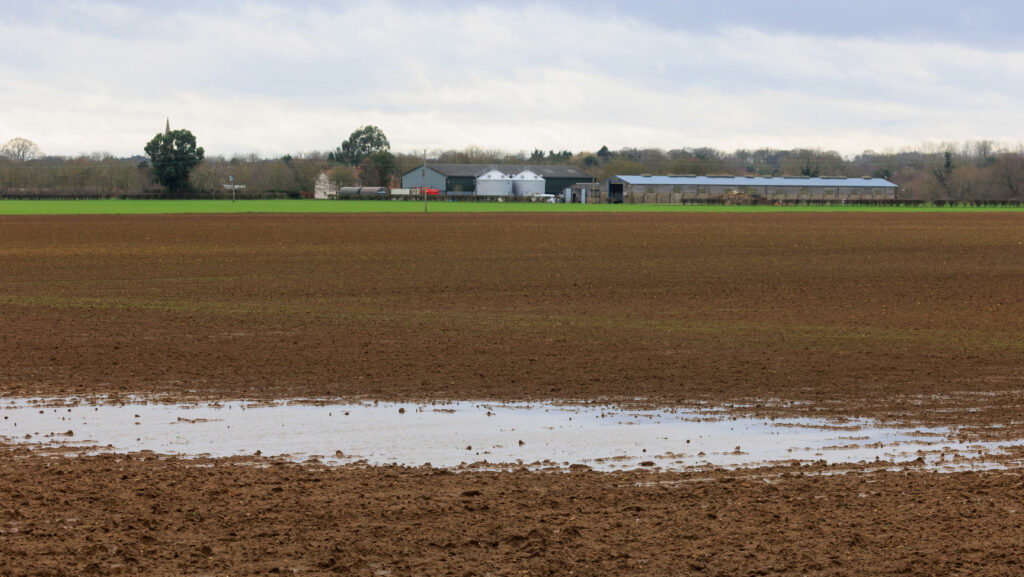Lowest cereals and OSR areas planted in over 20 years
 © Tim Scrivener
© Tim Scrivener Substantial rainfall in the autumn and spring, which limited opportunities for farmers to drill crops, is being cited as a key reason for a decline in cereal and oilseed rape plantings for harvest 2024.
The AHDB’s latest Planting and Variety Survey reveals a significant fall in the cereals and oilseed rape area in Great Britain this year, down by 5% to the lowest level in over two decades, at 3.2m hectares.
While barley and oats saw modest increases of 6% to 1.2m hectares and 9% to 180,000ha, these gains were offset by substantial declines in wheat, down 9% at 1.56m hectares, and OSR, down 21% at 307,000ha for harvest 2024.
See also: Editor’s View: Less output, more profit. Sounds good to me
According to the Met Office, the UK experienced record-breaking rainfall from September 2023 to May 2024, with 1,157mm of rainfall, 25% above the five-year average.
This heavy rainfall significantly limited farmers’ opportunities to plant during the winter and spring seasons, and resulted in unfavourable growing conditions for the crops that were planted due to the lowest sunshine hours recorded since 1995-96.
AHDB analyst Matt Darragh said: “Overall, the reduced area and poorer crop conditions, especially for winter crops, points to lower cereals and OSR production in 2024.”
However, while most regions experienced declines in cropping, Northern Ireland saw an increase, with the total wheat and barley area estimated to be up by 2% year-on-year and 6% above the five-year average, totalling 30,500ha.
Farms in Lincolnshire have been hit by some of the most serious flooding over the last 12 months, including the aftermath of Storm Babet in October 2023 and Storm Henk in January.
Yield concerns
Arable farmer Andrew Ward, who runs Glebe Farm, in Leadenham near Lincoln, expressed surprise that the wheat and OSR areas had not fallen even further.
“Almost one third of my farm [30%] has no crops on it and 15% of that area would have been used for winter wheat,” he told Farmers Weekly.
“After the wet autumn, I’m not surprised the spring cropping area is up, but what percentage of that area was planted in time, in good conditions?
“I think the yields will still be very poor because 0f the bad conditions spring crops were planted in, and many were late-drilled as well. Some people just mauled crops in to get something into the ground.”
Mr Ward says in areas where crops were not planted on his farm, he is working on cultivations and improving soil conditions to give him the best opportunity to drill crops early this autumn and recover from some of this year’s losses.
